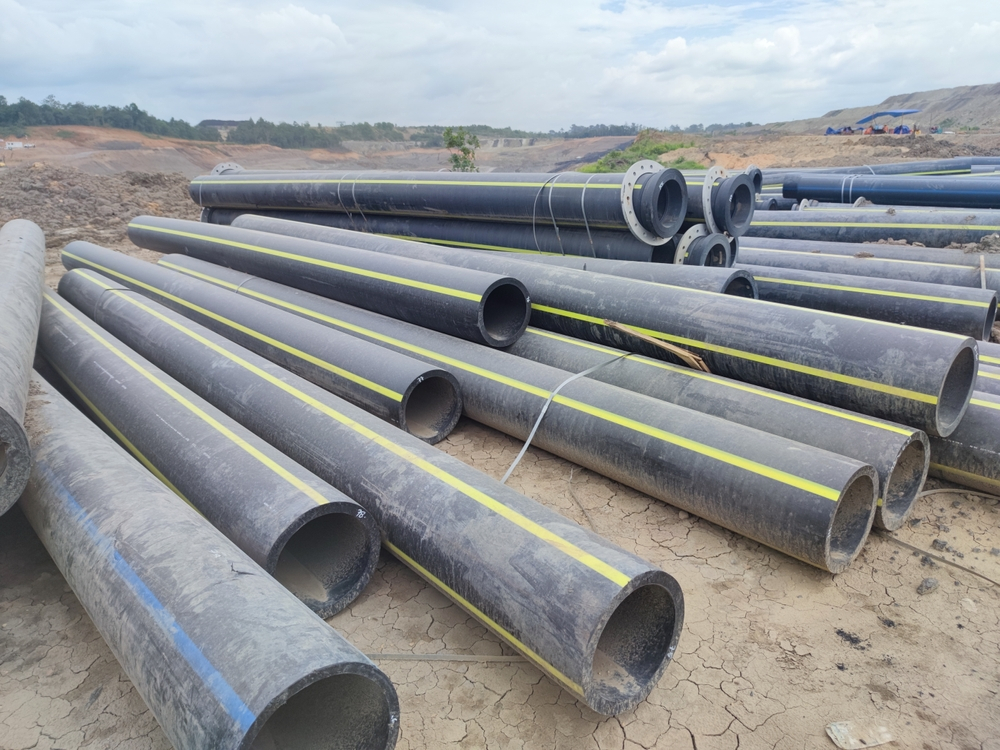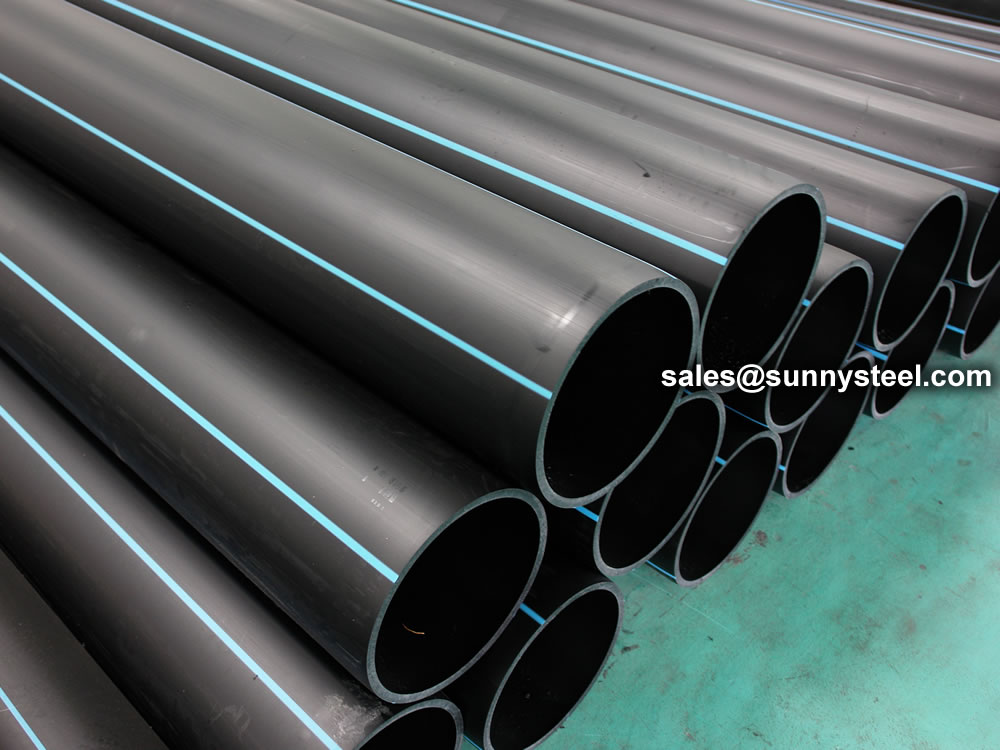How Midland TX HDPE Pipe Fittings in Stock Support Local Projects
A Comprehensive Overview to the Different Uses HDPE Pipe in Building And Construction and Sector
HDPE pipelines have become a critical element in modern-day building and industrial applications. Their distinct properties, such as resistance to rust and lightweight style, make them suitable for a vast array of uses. From water supply systems to agricultural watering, HDPE pipelines use remedies that improve performance and sustainability. Understanding their diverse applications is necessary for professionals looking to enhance infrastructure. What certain advantages do these pipelines offer each industry?
Water System and Distribution Systems
Water system and distribution systems are essential components of urban facilities, typically counting on high-density polyethylene (HDPE) pipelines for their toughness and performance. These systems transportation potable water from therapy facilities to customers, ensuring access and safety and security. HDPE pipes are preferred for their resistance to rust, chemicals, and extreme temperature levels, which boosts their durability and minimizes maintenance expenses. Furthermore, their light-weight nature permits less complicated installment and transport, making them optimal for different metropolitan and country applications.
The versatility of HDPE pipes enables them to be installed in tight rooms and around obstacles, reducing the demand for considerable excavation (Pipe Manufacturing Midland TX). Their smooth interior surface lowers friction losses, enhancing water circulation rates. As cities proceed to grow, the need for trustworthy water system systems increases, placing HDPE pipes as a lasting solution for contemporary framework jobs. Their tested record makes them a favored option amongst engineers and urban coordinators alike
Wastewater Management and Therapy
Reliable wastewater administration and treatment are vital for maintaining public health and ecological high quality. HDPE pipes play a vital role in this procedure as a result of their sturdiness, resistance to deterioration, and capability to withstand severe chemicals. These pipes are typically made use of in various applications, consisting of sewer system, stormwater drain, and wastewater therapy facilities. Their lightweight nature assists in much easier setup and transportation, minimizing labor costs and time.
Furthermore, HDPE pipes have a smooth interior surface that lessens friction loss, advertising efficient flow prices. They are likewise less vulnerable to leakages and failures contrasted to standard materials, guaranteeing that impurities are consisted of properly. Their adaptability permits for adaptability in different dirt conditions, making them suitable for diverse environmental setups. As markets progressively focus on lasting techniques, the usage of HDPE pipes in wastewater management systems straightens with goals for reducing ecological influence and enhancing resource healing.
Agricultural Irrigation Solutions
In agricultural setups, effective watering solutions are essential for enhancing plant returns and taking care of water sources. HDPE (High-Density Polyethylene) pipelines play an essential role in modern irrigation systems due to their toughness, flexibility, and resistance to corrosion. Their capability to stand up to high stress makes them perfect for both surface area and subsurface irrigation applications, making sure uniform water circulation throughout areas.
Farmers can make use of HDPE pipes in drip irrigation systems, which provide water directly to plant roots, minimizing waste and advertising healthy development. Furthermore, these pipelines are lightweight and easy to set up, lowering labor prices and setup time. Their long life expectancy and low upkeep requirements further improve their appeal in farming practices.
In addition, HDPE pipes are eco-friendly, as they can be reused and do not seep unsafe chemicals into the dirt. This makes them a sustainable selection for farmers intending to adopt environment-friendly agricultural techniques while taking full advantage of performance.
Industrial Applications and Procedures
Adaptability is a characteristic of HDPE pipelines, making them vital in different industrial applications and processes. These pipes are extensively utilized in chemical handling sectors because of their superb trap adapter resistance to a variety of destructive materials. HDPE's lightweight nature, combined with high tensile strength, enables simple setup and long-term efficiency in demanding environments.
In the oil and gas industry, HDPE pipes play a necessary duty in transferring hydrocarbons and gases, thanks to their longevity and adaptability - Texas hdpe pipe manufacturer. Furthermore, they are used in mining procedures for the transport of slurry and various other materials, where traditional piping systems might fall short
Additionally, HDPE pipelines are progressively made use of in producing centers for supply of water lines and wastewater administration. Their capacity to stand up to severe temperature read what he said levels and pressures makes them appropriate for a variety of industrial procedures. On the whole, HDPE pipelines contribute significantly to effectiveness and safety throughout varied commercial applications.
Stormwater Administration and Water Drainage Solutions
Stormwater management and water drainage systems are important parts in city framework, designed to take care of excess rainfall and decrease flooding threats. High-density polyethylene (HDPE) pipes are increasingly utilized in these systems as a result of their toughness, adaptability, and resistance to corrosion. These pipelines efficiently carry stormwater far from populated locations, minimizing surface runoff and stopping waterlogging.
HDPE's light-weight nature facilitates less complicated installation, decreasing labor expenses and building time. Additionally, its resistance to chemicals and environmental stressors guarantees longevity and dependability in various environments. In addition to conventional drainage applications, HDPE pipelines are additionally employed in cutting-edge solutions such as green facilities, that includes rainfall yards and absorptive pavements.

Often Asked Questions
How Does HDPE Pipeline Compare to PVC Pipeline in Cost?
As a whole, HDPE pipeline tends to be extra pricey than PVC pipe because of its enhanced resilience and adaptability. Nonetheless, lasting expense factors to consider, such as maintenance and life expectancy, may prefer HDPE in details applications.

What Is the Life Expectancy of HDPE Pipes Under Diverse Conditions?
HDPE pipelines usually have a life expectancy of 50 to 100 years, depending on environmental problems, setup techniques, and usage. Variables such as temperature, dirt kind, and direct exposure to chemicals can substantially influence their longevity.
Can HDPE Pipeline Be Recycled After Use?
Yes, HDPE pipes can be my sources recycled after use. The reusing process includes melting down the material, allowing it to be repurposed into brand-new items, consequently promoting sustainability and minimizing ecological influence connected with plastic waste.
Are There Any Type Of Particular Setup Difficulties With HDPE Pipelines?
Installment difficulties with HDPE pipelines include correct jointing methods, ensuring appropriate trench conditions, and managing thermal growth. Furthermore, knowledgeable labor is required to take care of specialized tools, which can make complex the installation process in numerous settings.

What Accreditations Should I Search For When Purchasing HDPE Pipelines?
When purchasing HDPE pipes, one ought to try to find qualifications such as ASTM, AASHTO, and ISO, which validate top quality and compliance with market standards, ensuring longevity and performance in different applications. - Texas hdpe pipe manufacturer